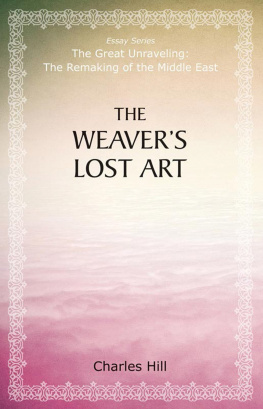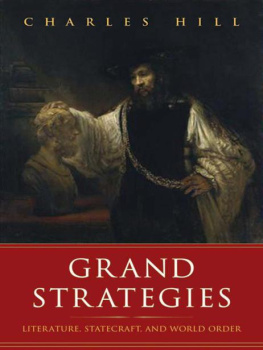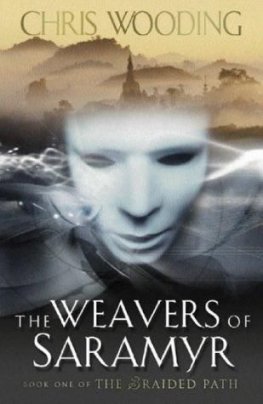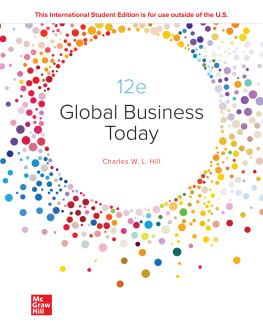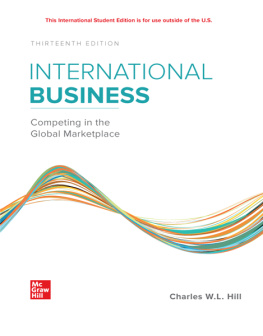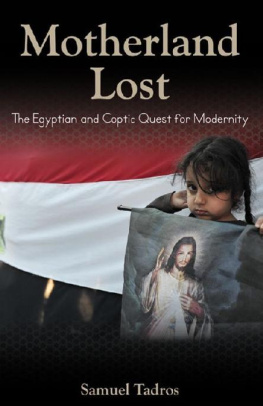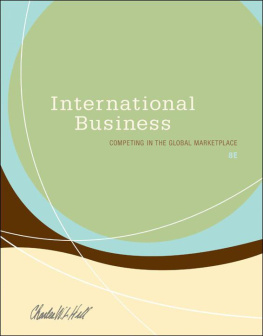HERBERT AND JANE DWIGHT WORKING GROUP ON ISLAMISM AND THE INTERNATIONAL ORDER
Many of the writings associated with this Working Group will be published by the Hoover Institution. Materials published to date, or in production, are listed below.
ESSAY SERIES:
THE GREAT UNRAVELING: THE REMAKING OF THE MIDDLE EAST
In Retreat: Americas Withdrawal from the Middle East
Russell A. Berman
Israel and the Arab Turmoil
Itamar Rabinovich
Reflections on the Revolution in Egypt
Samuel Tadros
The Struggle for Mastery in the Fertile Crescent
Fouad Ajami
The Weavers Lost Art
Charles Hill
The Consequences of Syria
Lee Smith
ESSAYS
Saudi Arabia and the New Strategic Landscape
Joshua Teitelbaum
Islamism and the Future of the Christians of the Middle East
Habib C. Malik
Syria through Jihadist Eyes: A Perfect Enemy
Nibras Kazimi
The Ideological Struggle for Pakistan
Ziad Haider
Syria, Iran, and Hezbollah: The Unholy Alliance and Its War on Lebanon
Marius Deeb
[For a list of books published under the auspices of the WORKING GROUP ON ISLAMISM AND THE INTERNATIONAL ORDER, please see page 63.]

The Hoover Institution on War, Revolution and Peace, founded at Stanford University in 1919 by Herbert Hoover, who went on to become the thirty-first president of the United States, is an interdisciplinary research center for advanced study on domestic and international affairs. The views expressed in its publications are entirely those of the authors and do not necessarily reflect the views of the staff, officers, or Board of Overseers of the Hoover Institution.
www.hoover.org
Hoover Institution Press Publication No. 650
Hoover Institution at Leland Stanford Junior University, Stanford, California, 94305-6010
Copyright 2014 by the Board of Trustees of the
Leland Stanford Junior University
All rights reserved. No part of this publication may be reproduced, stored in a retrieval system, or transmitted in any form or by any means, electronic, mechanical, photocopying, recording, or otherwise, without written permission of the publisher and copyright holders.
For permission to reuse material from The Weavers Lost Art, by Charles Hill, ISBN 978-0-8179-1765-4, please access www.copyright.com or contact the Copyright Clearance Center, Inc. (CCC), 222 Rosewood Drive, Danvers, MA 01923, 978-750-8400. CCC is a not-for-profit organization that provides licenses and registration for a variety of uses.
Cataloging-in-Publication Data is available from the Library of Congress.
ISBN 978-0-8179-1765-4 (pbk.: alk. paper)
ISBN 978-0-8179-1766-1 (epub)
ISBN 978-0-8179-1767-8 (mobi)
ISBN 978-0-8179-1768-6 (PDF)
The Hoover Institution gratefully acknowledges the following individuals and foundations for their significant support of the
HERBERT AND JANE DWIGHT WORKING GROUP ON ISLAMISM AND THE INTERNATIONAL ORDER:
Herbert and Jane Dwight
Mr. and Mrs. Norman R. Beall
Stephen Bechtel Foundation
Lynde and Harry Bradley Foundation
Mr. and Mrs. Clayton W. Frye Jr.
Lakeside Foundation
CONTENTS
SERIES FOREWORD
The Great Unraveling: The Remaking of the Middle East
ITS A MANTRA, but it is also true: the Middle East is being unmade and remade. The autocracies that gave so many of these states the appearance of stability are gone, their dreaded rulers dispatched to prison or exile or cut down by young people who had yearned for the end of the despotisms. These autocracies were large prisons, and in 2011, a storm overtook that stagnant world. The spectacle wasnt pretty, but prison riots never are. In the Fertile Crescent, the work of the colonial cartographersGertrude Bell, Winston Churchill, and Georges Clemenceauare in play as they have never been before. Arab nationalists were given to lamenting that they lived in nation-states invented by Western powers in the aftermath of the Great War. Now, a century later, with the ground burning in Lebanon, Syria, and Iraq and the religious sects at war, not even the most ardent nationalists can be sure that they can put in place anything better than the old order.
Men get used to the troubles they know, and the Greater Middle East seems fated for grief and breakdown. Outside powers approach it with dread; merciless political contenders have the run of it. There is swagger in Iran and a belief that the radical theocracy can bully its rivals into submission. There was a period when the United States provided a modicum of order in these Middle Eastern lands. But pleading fatigue, and financial scarcity at home, we have all but announced the end of that stewardship. We are poorer for that abdication, and the Middle East is thus left to the mercy of predators of every kind.
We asked a number of authors to give this spectacle of disorder their best try. We imposed no rules on them, as we were sure their essays would take us close to the sources of the malady.
FOUAD AJAMI
Senior Fellow, Hoover Institution
Cochairman, Herbert and Jane Dwight Working Group
on Islamism and the International Order
CHARLES HILL
Distinguished Fellow of the Brady-Johnson Program
in Grand Strategy at Yale University;
Research Fellow, Hoover Institution
Cochairman, Herbert and Jane Dwight Working Group
on Islamism and the International Order
The Weavers Lost Art
CHARLES HILL
THE TANGLED SKEIN of the worlds problems is Gordian knotted in the worst places; in other words, what we call the field of international relationsglobal studies, foreign affairs, world politics, etc.in recent years has evolved into one more dimension of professional policy analysis or social science research, as the methodologies of domestic issues are applied with scant success to the larger outside scene.
But there has always been something mysterious and intellectually profound hovering around such matters, something now disdained or forgotten. Hegel conveyed the sense that here, in high world affairs, lay the most significant philosophical and moral questions of the human condition, questions which, if not ultimately answerable, had to be confronted if humanity were to grasp its own meaning. This in turn implied that ideas and assumptions of the greatest consequence might be at work far below the surface of strategy, policy, and daily operations. This essay will attempt to locate and illuminate that realm.
For a hundred years or more the United States has acted as the monitor and guarantor of the international state system and the elemental requirements of world order, sometimes intervening, sometimes standing aside, sometimes deferring to the United Nations and the claims of international law. Now, in the early twenty-first century, it appears that the US is abdicating, no longer willingand soon perhaps no longer ableto take a leading responsibility for the maintenance of international peace and security.



